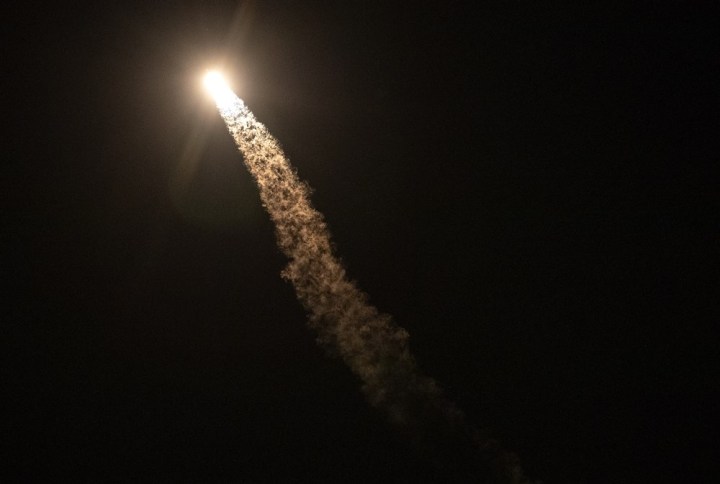Newsdeck
Japan’s Space One Kairos rocket explodes on inaugural flight

TOKYO, March 13 (Reuters) - Japan's Space One's small, solid-fuelled Kairos rocket exploded shortly after its inaugural launch on Wednesday as the firm tried to become the first Japanese company to put a satellite in orbit.
By Kantaro Komiya
The 18-metre (59 ft), four-stage solid-fuel rocket exploded seconds after lifting off just after 11:01 a.m. (0201 GMT), leaving behind a large loud of smoke, a fire, fragments of the rocket and firefighting water sprays near the launch pad, visible on local media livestreams of the launch on the tip of mountainous Kii peninsula in western Japan.
Space One said the flight was “interrupted” after the launch and was investigating the situation. There was no immediate indication of what caused the explosion, or whether there were any injuries. Pads typically have no people anywhere nearby during a launch. Space One has said the launch is highly automated and requires roughly a dozen staff at the ground control centre.
Kairos carried an experimental government satellite that can temporarily replace intelligence satellites in orbit if they fall offline.
Space One had planned the launch for Saturday but postponed it after a ship entered the nearby restricted sea area.
Although Japan is a relatively small player in the space race, the nation’s rocket developers are scrambling to build cheaper vehicles to capture booming demand for satellite launches from its government and from global clients.
Tokyo-based Space One was established in 2018 by a consortium of Japanese companies: Canon Electronics 7739.T, the aerospace engineering unit of IHI 7013.T, construction firm Shimizu 1803.T and the state-backed Development Bank of Japan. Two of Japan’s biggest banks, Mitsubishi UFJ 8306.T and Mizuho 8411.T, also own minority stakes.
Shares in Canon Electronics fell more than 9% after Wednesday’s failed launch.
Space One wants to offer “space courier services” to domestic and international clients, aiming to launch 20 rockets a year by the late 2020s, its president Masakazu Toyoda said. Although the company delayed Kairos’ inaugural launch window four times, it said orders for its second and third planned trips have been filled, including by an overseas customer.
Space One does not disclose Kairos’ launch costs, but company executive Kozo Abe said it is “competitive enough” against American rival Rocket Lab RKLB.O.
Rocket Lab has launched more than 40 Electron small rockets from New Zealand since 2017 at roughly $7 million per flight. Several Japanese companies have used Electron for their missions, including radar satellite makers iQPS 5595.T and Synspective, and orbital debris-removal startup Astroscale.
Last month, state-funded Japan Aerospace Exploration Agency (JAXA) successfully launched its new cost-efficient flagship rocket, the H3. JAXA completed a historic “pinpoint” moon landing this year, and the H3 is scheduled to carry about 20 satellites and probes to the space by 2030.
In 2019, Interstellar Technologies conducted Japan’s first privately developed rocket launch with its MOMO series, although without a full-scale satellite payload.
Partnering with the United States, Japan is seeking to revitalise its domestic aerospace industry to counter technological and military rivalry from China and Russia.
The government last year promised “comprehensive” support for space startups with technology critical for national security, as it seeks to build satellite constellations to ramp up intelligence capabilities.
Japan’s defence ministry on Friday said it had struck a deal with Space One to boost its rockets’ payload by experimenting with fuel-efficient methane engines.
(Reporting by Kantaro Komiya; Editing by Sam Holmes and Gerry Doyle)



















Comments - Please login in order to comment.